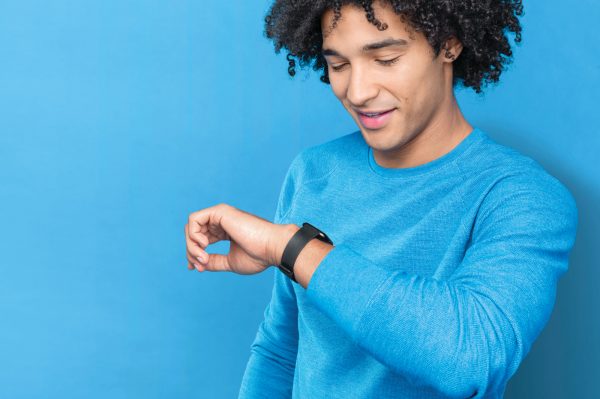
In the face of competition in the wearables space from the likes of Samsung and Apple, San Francisco-based wearables pioneer Fitbit has responded through new lower-cost consumer devices and increasing focus on its enterprise business lines as it moves past basic fitness tracking capabilities.
The company’s Versa Lite smartwatch is a pared down and cheaper version of Fitbit’s Versa device, but has nearly all of the same features including activity, heart rate and sleep tracking, as well as blood oxygen sensor to track new health indications like sleep apnea.

With the Rise of AI, What IP Disputes in Healthcare Are Likely to Emerge?
Munck Wilson Mandala Partner Greg Howison shared his perspective on some of the legal ramifications around AI, IP, connected devices and the data they generate, in response to emailed questions.
Versa Lite’s $160 cost seems designed to get smartwatch technology onto more wrists at a lower price point than competitors like Apple Watch, which retails for $400 for its latest version.
Fitbit has also released its Inspire HR and Inspire devices – which were previously only available to enterprise customers – to the general public. Lastly, the newly launched Fitbit Ace 2 is designed for children and is meant to help them on the pathway to creating healthy habits.
“We’ve really started off, historically, focusing on helping our users with their fitness and health goals, whether it’s managing their weight, getting more active and fit, sleeping better, reducing their stress,” Fitbit CEO James Park at their New York press event.
“But increasingly we’re helping people more with serious and chronic disease conditions, whether it’s diabetes, heart health, sleep disorders and mental health.”
Case in point, Fitbit is expanding its partnership with Phoenix, Arizona-based Solera Health to help with Type 2 diabetes prevention.
Based on early promising results from using Fitbit devices in its diabetes prevention program, Solera is making Fitbit Inspire and Fitbit Inspire HR available to all of its diabetes program participants including Medicare and Medicaid beneficiaries.
An analysis of 1,700 enrollees in Solera’s diabetes prevention program found that users who redeemed a Fitbit device lost more weight and reported more weekly activity when compared to non-users.
Furthermore, the devices were most popular among participants between the ages of 60 and 69, a critically important demographic to hit as the company looks to work in the regulated health space.
“Our unique ability to connect individuals with the best-fit DPP to meet their needs and preferences, paired with Fitbit’s easy-to-use wearable devices, has the potential to significantly alter how populations approach chronic disease prevention and management,” Solera Health CEO Brenda Schmidt said in statement.
“We look forward to scaling this partnership further in order to help future program participants maintain and improve their health.”
On the consumer side, the sharper focus on health maintenance has led a upcoming redesign of the Fitbit app which will make it easier for users to track fitness and health measurements and goals. The company is also beta testing a rewards program where healthy behaviors will earn points which can be redeemed for prizes or discounts on Fitbit merchandise.
Fitbit is also in the process of conducting clinical validation tests so their devices can track health conditions like a-fib and sleep apnea. These new capabilities set the stage for an enhanced paid premium service, which the company plans to roll out later this year.
The company in betting hard on its Fitbit Health Solutions enterprise business line as it shifts its business model from device sales to recurring software and services revenue. The business line is projected to hit $100 million in revenue in 2019.
According to the company, Fitbit has more than 680 clinical research partners, 1,600 enterprise health customers and works with more than 100 health plans on wellness and health management programs, including 42 Medicare Advantage plans, which means that devices are provided to many plan members for free.
Park said on the company’s fourth quarter earnings call that expansion of its Fitbit Care platform which wraps in health coaching and virtual care, is key to this strategy.
In support of these more robust offerings the platform also supports the integration of more advanced health metrics like blood glucose levels, blood pressure and medication adherence.
“Looking forward, we believe Fitbit Care will enable us to transition our business from device sales only to per-member-per-month pricing, per-employee-per-month pricing, and shared risk models. In fact, just recently we signed a $2 million software and services deal for Fitbit Care with a large national plan on a per-member-per-month model,” Park said.
Picture: Fitbit














